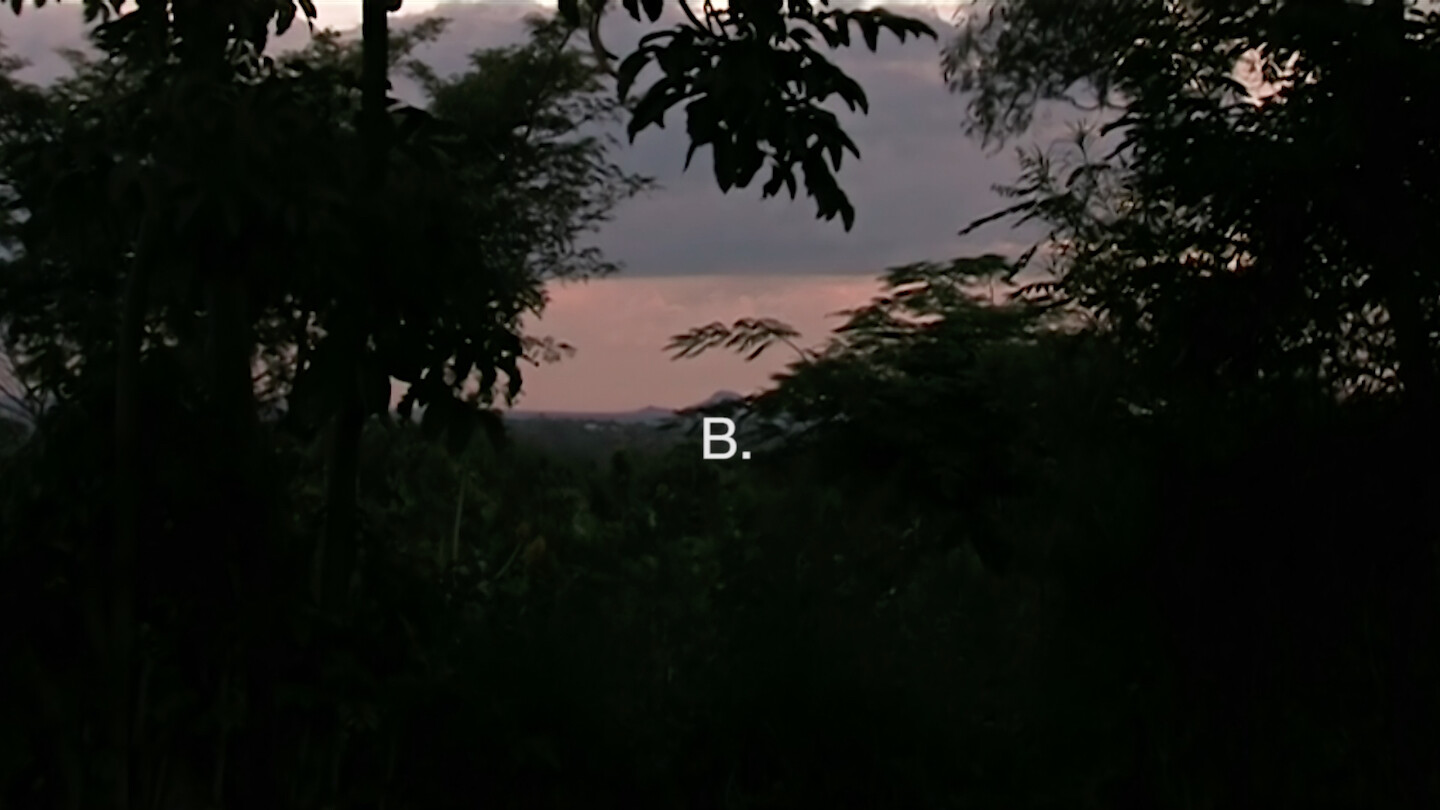Artist Cinemas presents
Promised Lands
Emma Wolukau-Wanambwa
2015–18
20 Minutes
Artist Cinemas
Week #5
Date
May 27–June 2, 2020
Join us on e-flux Video & Film for an online screening of Emma Wolukau-Wanambwa‘s Promised Lands (2015–2018), on view from Wednesday, May 27 through Tuesday, June 2, 2020.
“People only know where one country ends and another begins because people have said it is so. The land doesn’t know. The land probably doesn’t care. Words kill.” So begins the narration of Promised Lands, as the artist tries to make a film but is interrupted by family conversations in rural Uganda.
Promised Lands is presented here alongside an imagined conversation between the filmmaker and Andros Zins-Browne. The film and interview are the fifth installment of École du soir: Six Films, from Rwanda and Beyond, a program of films, video works, and interviews convened by artist Christian Nyampeta, and inaugurating Artist Cinemas, a long-term, online series of film programs curated by artists for e-flux Video & Film.
École du soir will run from April 29 through June 9, 2020, with each film running for one week and featuring an interview with the filmmaker by an invited guest.
The following interview is unusual in that it is an imagined dialogue bringing together two separate conversations held by artist and researcher Emma Wolukau-Wanambwa and choreographer Andros Zins-Browne, whose end of the conversation is presented here. Zins-Browne’s component emerges from ongoing informal conversations held weekly for the past three months between a widening group of colleagues, who try to think about the relationship between the feral, the civilized, and the virus. Altogether, at stake here is an attempt to continue “the linking of phrases” between separate and yet affective communities and networks of practices concerned with similar issues of history, pedagogies, movement, and genealogies.
Imagined Conversation between Emma Wolukau-Wanambwa and Andros Zins-Browne
Edited by Christian Nyampeta
Andros Zins-Browne (AZB):
The question towards the end from the Austrian police, “Are you with these people?” feels particularly haunting. l‘ve been in that position many times before—neither accepted by the side of the police (or whatever power structure) nor fully recognized as one of “these people.”
AZB:
The film references Yvonne Rainer’s “No Manifesto” (1965), which is especially eerie in our current situation of pandemic. I start to imagine the Nos that our planet would say if it had the privilege to be postmodern.
The film begins by evoking a speculative subjectivity of land. Does land know or care about borders? What does it care about? What might it refuse? In these pandemic times, it feels like we’re experiencing something like nature’s No Manifesto.
AZB:
Images From Abroad feels like it could be another title for the film. It’s funny, but watching the film I felt like I was looking at a Caspar David Friedrich painting—but in reverse. The land looks back at us, then back at the Austrian police. It seems to ask, Are ”we” with “them”?
Promised Lands also reminds me of Chris Marker’s Sans Soleil. Which is great for a film that we follow into the sunset! It seems like you’re playing in and out of these references which are mostly white/western/European/masculinized, if not male. I mean, Magritte also makes an appearance when in your film you write, “This is not a jungle, “or “This is not Buganda,” etc.
AZB:
The main actor is the landscape, the supporting actor is a familial local—you say your uncle—whom we don’t actually see. An accumulation emerges where human negations (No to…, This is not…) are dwarfed by the negations performed by the land itself. The land doesn’t speak (it only observes). It doesn’t need to. It’s not part of history and its references, but of Time. Its power is in its refusal to move. Maybe the land is a postmodern dancer too.
For more information, contact program [at] e-flux.com.
